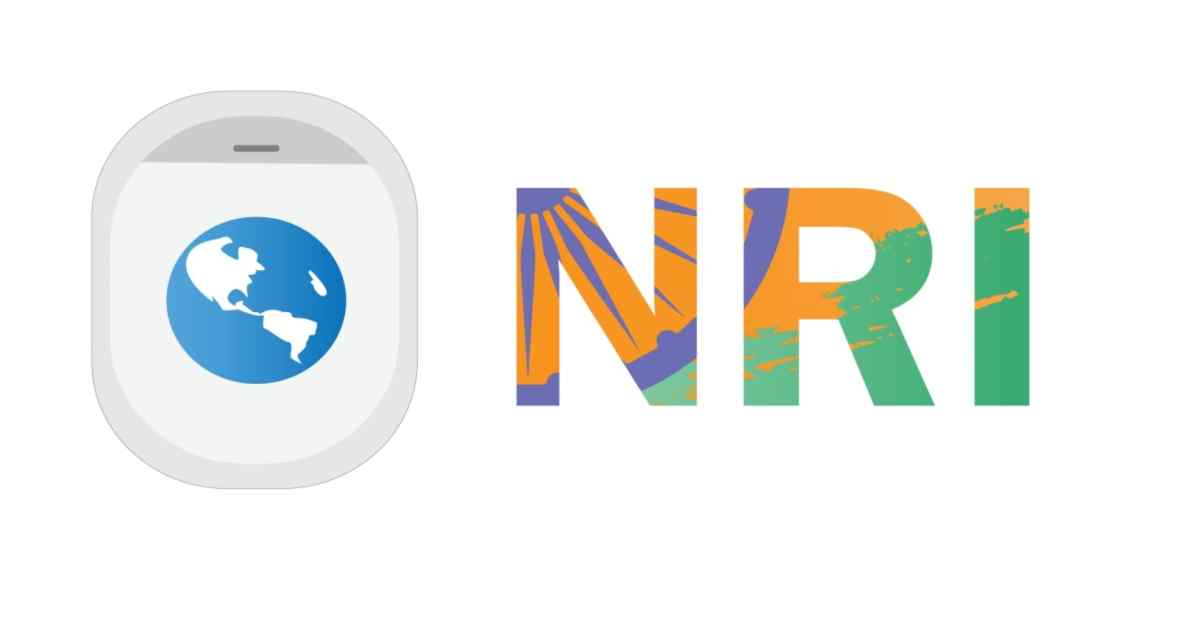Table of Contents
Quality Service Guarantee Or Painting Free

Get a rental agreement with doorstep delivery

Find the BEST deals and get unbelievable DISCOUNTS directly from builders!

5-Star rated painters, premium paints and services at the BEST PRICES!
Loved what you read? Share it with others!


Submit the Form to Unlock the Best Deals Today
Check Your Eligibility Instantly

Experience The NoBrokerHood Difference!
Set up a demo for the entire community
Financial Planning Strategies for NRIs
Table of Contents
The global population of Non-Resident Indians (NRIs) has been steadily growing in recent years, fuelled by factors such as globalisation, job opportunities, and educational pursuits abroad. However, managing finances from afar can be very challenging for anyone. In such situations, financial planning for NRIs is crucial if you want to grow your business or asset. Whether you are staying abroad temporarily or have relocated for good, here are some very essential financial planning tips to help you make informed decisions while building a strong financial foundation.
Importance of Financial Planning for a NRI
As an NRI, you face a unique set of financial challenges and opportunities. From learning different tax rules to managing fluctuating currencies, the financial landscape can sometimes feel like a maze. That's where financial planning comes in – it's like having a roadmap to guide you through the twists and turns of global finance.
Now, let's break down why financial planning is so important for an NRI:
Quality Service Guarantee Or Painting Free

Get a rental agreement with doorstep delivery

Find the BEST deals and get unbelievable DISCOUNTS directly from builders!

5-Star rated painters, premium paints and services at the BEST PRICES!
Protecting Your Hard-Earned Money
Financial planning helps you safeguard your money and assets, ensuring they're not lost in the shuffle of international transactions or unexpected events.
Making the Most of Your Opportunities:
With a solid financial plan in place, you can seize opportunities for growth and investment, whether it's buying property back home or investing in global markets.
Minimising Tax Headaches
Understanding the tax rules in both your home country and where you live abroad can be a headache. But with proper financial planning, you can minimise your tax burden and keep more of your money in your pocket.
Planning for the Future
Whether it's saving for retirement, funding your children's education, or buying your dream home, financial planning helps you set and achieve your long-term goals.
Peace of Mind
Perhaps most importantly, financial planning gives you peace of mind knowing that you're on the right track towards financial security and stability, no matter where life takes you.
Understanding Financial Goals
By understanding your financial goals, prioritising them effectively, and tailoring your financial plans to achieve them, you can set yourself up for success and make your dreams a reality.
Identifying Short-term and Long-term Goals
- Short-term goals are things you want to achieve in the near future, like saving for a vacation or buying a new car.
- Long-term goals are bigger dreams that take time to achieve, such as buying a house, funding your child's education, or retiring comfortably.
- By identifying both short-term and long-term goals, you can create a roadmap for your financial journey, ensuring that you're working towards what matters most to you.
Prioritising Goals Based on Importance and Urgency
- Not all goals are created equal – some are more important or urgent than others.
- Take the time to prioritise your goals based on what's most important to you and what needs to be addressed first.
- For example, if you have high-interest debt, paying it off may be a more urgent priority than saving for a vacation.
Tailoring Financial Plans to Achieve Specific Objectives
- Once you've identified and prioritised your goals, it's time to create a financial plan to achieve them.
- Your financial plan should be tailored to your specific objectives, taking into account factors like your income, expenses, risk tolerance, and time horizon.
- Whether it's setting up automatic savings for a down payment on a house or investing in a retirement account, your plan should align with your goals and help you make steady progress towards achieving them.
10 Financial Planning Tips for Non-Resident Indians
1. Understand Your Tax Obligations
- Get familiar with the tax laws in both your home country and your residence country.
- Understand your tax liabilities through your tax residency status.
2. Diversify Your Investments
- Spread your investment across different asset classes, such as real estate, stocks and mutual funds.
- Diversification helps reduce risk and maximise returns over the long term.
3. Plan for Retirement
- Plan for your retirement well-ahead even if you are abroad temporarily.
- Explore retirement savings plan catering to NRIs such as pension plans, annuities and offshore accounts.
4. Protect Your Assets
- Obtain appropriate insurance coverage for health, life, property, and liability to protect your assets against unforeseen events.
- Consider setting up trusts or other asset protection strategies to safeguard your wealth.
5. Stay Informed
- Keep yourself updated on financial news, market trends, and regulatory changes that may impact your financial situation.
- Attend seminars, workshops, or webinars specifically tailored for NRIs to enhance your financial knowledge.
6. Manage Currency Risk
- Be mindful of currency fluctuations and their impact on the value of your investments and savings.
- Consider hedging strategies or diversifying your assets across different currencies to mitigate currency risk.
7. Budget Wisely
- Create a budget and stick to it to ensure that you're living within your means.
- Track your expenses and identify areas where you can cut back or save more.
8. Plan for Education Expenses
- If you have children, start planning and saving for their education early.
- Explore education savings plans and investment options to help fund their educational expenses.
9. Review Your Financial Plan Regularly
- Regularly review your financial goals, investment portfolio, and retirement plan to ensure they're aligned with your objectives.
- Make adjustments as needed based on changes in your life circumstances or financial situation.
10. Seek Professional Advice
- Consider consulting with a financial advisor who specialises in working with NRIs.
- A professional advisor can provide personalised guidance and help you make informed financial decisions based on your unique circumstances.
How to Create a Budget as an NRI?
Creating a budget as a Non-Resident Indian (NRI) is essential for managing your finances effectively and achieving your financial goals. Here's a step-by-step guide to help you create a budget as an NRI:
Determine Your Income
- Calculate your total monthly income, including salary, bonuses, rental income, investment dividends, or any other sources of income you receive regularly.
List Your Expenses
- Make a list of all your monthly expenses, including rent or mortgage payments, utilities, groceries, transportation, insurance premiums, loan payments, and discretionary spending on entertainment, dining out, and travel.
Differentiate Between Fixed and Variable Expenses
- Identify your fixed expenses, which remain consistent each month, such as rent or mortgage payments, insurance premiums, and loan payments.
- Differentiate between variable expenses, which may fluctuate from month to month, such as groceries, dining out, and entertainment.
Calculate Your Savings Goals
- Determine how much you want to save each month towards your short-term and long-term financial goals, such as retirement, education, buying a home, or emergencies.
Prioritise Your Expenses
- Prioritise your expenses based on necessity and importance. Essential expenses like housing, utilities, and groceries should take precedence over discretionary spending on non-essential items.
Allocate Funds for Taxes
- If applicable, allocate funds for taxes, including income taxes in your country of residence and any other tax obligations you may have in your home country.
Monitor and Track Your Spending
- Keep track of your spending throughout the month to ensure you're staying within your budget.
- Use budgeting tools, apps, or spreadsheets to monitor your expenses and identify areas where you can cut back or save more.
Adjust Your Budget as Needed
- Review your budget regularly and make adjustments as needed based on changes in your income, expenses, or financial goals.
- Be flexible and adapt your budget to accommodate unexpected expenses or changes in your financial situation.
Set Financial Goals
- Set specific financial goals for yourself, such as saving for a down payment on a home, paying off debt, or building an emergency fund.
- Break down your goals into achievable milestones and track your progress regularly.
Seek Professional Advice
- Consider consulting with a financial advisor who specialises in working with NRIs to help you create a budget and develop a personalised financial plan tailored to your unique circumstances and goals.
Financial Planning For NRIs Made Easy With NoBroker
As you plan your finances as an NRI, remember that you don't have to do it alone. NoBroker has a team of experts who can help you with your financial planning. Whether you need help with taxes, investments, retirement, or protecting your assets, our experts are here for you. With their guidance, you can make smart decisions and build a secure financial future for yourself and your family. Reach out to NoBroker's NRI financial planning experts today and take the first step towards a better financial tomorrow.

FAQs
Financial planning involves setting financial goals, creating a roadmap to achieve them, and managing finances effectively. It's essential for NRIs to ensure their financial security, maximise opportunities, and navigate the complexities of international finance.
NRIs face unique challenges such as managing multiple currencies, understanding tax laws in different countries, and protecting assets across borders. Financial planning helps address these challenges and optimise financial outcomes.
Professional financial advisors specialising in NRI financial planning can provide personalised guidance, navigate complex tax laws, optimise investment strategies, and ensure compliance with legal and regulatory requirements.
The steps include assessing the current financial situation, setting financial goals, understanding tax obligations, diversifying investments, planning for retirement, protecting assets, staying informed, budgeting wisely, planning for education expenses, reviewing the financial plan regularly, and seeking professional advice.
NRIs have access to various investment options, including stocks, bonds, mutual funds, real estate, retirement accounts, and offshore investments. It's essential to diversify investments based on risk tolerance, investment objectives, and time horizon.
NRIs can manage currency exchange risks by diversifying investments across different currencies, using hedging strategies, and staying informed about currency fluctuations. It's essential to consider currency risks when investing internationally.
Loved what you read? Share it with others!
Most Viewed Articles

Know About ICICI NRI Account: Document Required, Eligibility and Application Process in 2025
January 31, 2025
23784+ views

NRI Power of Attorney: Empowering Overseas Decision-Making
January 31, 2025
18526+ views

Best NRI Accounts in India 2025
January 31, 2025
13491+ views

NRE vs NRO Account: Understanding the Difference for NRIs
January 31, 2025
8127+ views

TCS on Foreign Remittance: Understanding Implications
January 31, 2025
6298+ views
Recent blogs in
Exclusive Services for NRI Home Owners
January 31, 2025 by Vivek Mishra
The Ultimate NRIs Guide to Buying Property in India
January 31, 2025 by NoBroker.com
Buying A Resale Home from NRIs
January 31, 2025 by NoBroker.com
How to Choose the Top 10 Cities in India 2025 to Invest in For NRIs
January 31, 2025 by NoBroker.com
प्रवासी भारतीय ( NRI) मकान मालिकों के लिए विशेष सेवाएँ
January 31, 2025 by NoBroker.com




Join the conversation!